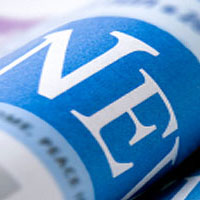
For many outside of our region, the Middle East is a place where dreams go to die. War, conflict and violence would appear to be our biggest export – after oil. In places like Yemen and Libya, bullets are easier to come by than bread. Historically, as with the Arab Spring, attempts at change were met by repression and retrenchment of the status quo.
Armchair critics, far removed from the reality on the ground in our part of the world, respond to initiatives promising empowerment and inclusion with a healthy degree of skepticism and not a little disdain. They point to rampant corruption, inequality and a statist mindset that stifles innovation.
Lost in this tit-for-tat between skeptics and supporters is the perspective of Saudi Arabia’s most important and consequential constituency: the fifty percent of the population under the age of twenty-five. These are the people for whom reform is being made, and they are the ones that will determine its success or failure.
I am a thirty year old Saudi artist whose paintings hang on the walls of Saudi royal palaces, museums and the homes of stars like Kanye West, Cuba Gooding and Kim Kardashian. For me and a large portion of my generation, the change in Saudi Arabia is real and the future looks bright.
We have spent our entire lives waiting for this moment that has finally arrived. We are citizens of the world; connected to others; proud of who we are; bridling to break out and make our mark, both at home and beyond our borders. Until now, we have had to devise creative workarounds to overcome the restrictions placed upon us. For example, if I and my male friends wanted to pick up girls, we would go to men-only section of a restaurant and communicate with the young ladies in the women-only section via the Bluetooth feature on our mobile phones to set up future rendez-vous.
The lifting of constraints in Saudi Arabia is producing a slingshot effect. The prohibitions of the past produced incredible inventiveness and creative energy. That energy has now been released, and it will prove a powerful force. Women driving, cinemas opening, travel restrictions easing are but the outward indicators of a more profound transformation.
We are witnessing the emergence of a new generation for whom investigation replaces revelation. We are free to act on our pent-up yearnings and ambitions. Dreams are becoming possibilities. Cynicism and resignation are giving give way to hope and determination. Saudi Arabia will never be the same.
It has become a truism to declare that a country’s human capital is its greatest resource. There is no shortage of creativity in Saudi Arabia, but the government is putting its money where its mouth is. Led by Bader al Asaker, The Prince Mohammed bin Salman bin Abdulaziz Foundation, –“MiSK” – has undertaken a far-reaching national initiative to foster the artistic and scientific talent, creative potential, and innovation of the country’s youth.
To harness the creative power of Saudi Arabia’s millennial generation and to convert it into productive economic and social change, my colleagues and I established the Saudi National Creative Initiative — a collaborative knowledge transfer platform for mapping Saudi Arabia’s creativity sector and fostering partnerships that unleash its full potential. And we need your help.
Progress is never linear, and there will be setbacks. Expectations are high and disappointment is all but inevitable. But we can help manage these expectations by opening up and sustaining channels of communication and collaboration. The youth of Saudi Arabia is indeed aware, empowered and motivated as never before, but foreign know-how, expertise, training and investment are required to translate today’s opportunity into tomorrow’s achievement. We must connect the tens of thousands of innovators among us to outside mentors, capital and the global infrastructure of partnership.
My art and activism reflect the hope and unyielding optimism of a generation striving to make its voice heard. For our entire lives, we have been fighting a war between the dreams of what we want and the reality in which we live. Today, it is undeniable that Saudi Arabia’s reality has changed, and for the better. We will make the desert bloom.










